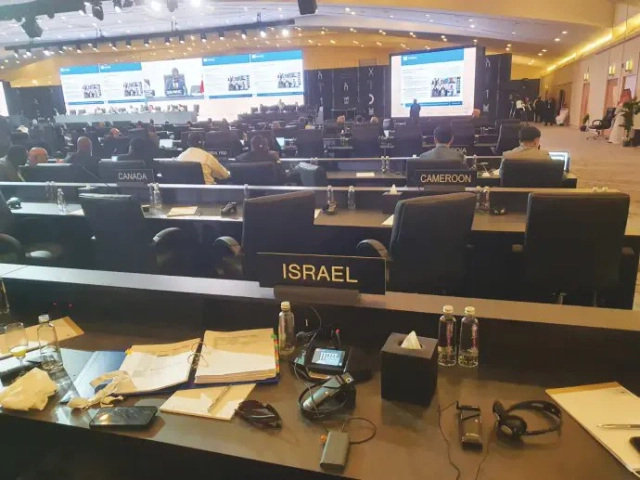The UNESCO World Heritage Council meeting in Riyadh, the capital of Saudi Arabia, has reached the culmination of its first week. Notably, this gathering includes the participation of Israeli officials, marking a historic event. During the course of the meeting, discussions have revolved around the pressing issue of endangered heritage sites in various Arab countries. However, a noteworthy omission from these discussions is the situation of heritage sites within the territory of Israel and the Palestinian Authority, which has been claimed by Palestinians to be in imminent peril. This omission is a result of a mutual understanding reached by the Israeli delegation.
Amidst this noteworthy development, it is essential to highlight that the sole remaining Israeli representative in Riyadh, Amir Weissbrod, who serves as the Deputy Director of the Ministry of Foreign Affairs for International Organizations, will be vacating his seat before the onset of Rosh Hashanah. Following the holiday, a new delegation is slated to arrive, and among its primary objectives will be participation in the deliberations regarding the potential registration of Tel Jericho as a Palestinian heritage site. It is worth noting that despite the monumental milestone of Israeli officials being publicly hosted in Saudi Arabia, no official statements or acknowledgments regarding their presence have emanated from Saudi government officials thus far.
An #Israeli delegation's presence in Saudi Arabia for a UNESCO World Heritage Committee session signifies #Israel's first publicly disclosed visit to Saudi Arabia as rumors of normalization between the two nations abound.
— StandWithUs (@StandWithUs) September 12, 2023
We hope that a new Middle East is on the way! 🇮🇱🕊️🇸🇦 pic.twitter.com/UTcSrpcNOj
Furthermore, an intriguing aspect of this gathering is the proximity of the Iranian delegation to the Israeli representatives. They find themselves seated just a few seats apart from each other. When questioned about how they are managing this proximity, the Iranian representative responded with a broad smile but chose to remain silent. Meanwhile, the Saudi media has diligently covered the convening of the Supreme Court and the ongoing political crisis in Israel, adopting a generally matter-of-fact approach. However, there has been relatively little coverage of the current presence of Israeli officials in the Saudi capital. Notably, "Arab News," in its English version, speculated that both parties might be able to achieve a compromise leading to full normalization by January.
An Israeli delegation makes its first announced visit to #Saudi Arabia to attend a UNESCO meeting pic.twitter.com/MhZFwTKPiy
— 3li🇦🇪 (@AD__UAE_) September 11, 2023
Meanwhile, in a separate development, Tzachi Hangabi, the head of the National Security Council, disclosed that Israel has recently initiated discussions with Palestinian officials. These discussions are part of a concerted effort to forge a normalization agreement with Saudi Arabia. Hangabi emphasized the uniqueness of this dialogue, as it represents the first of its kind in at least a decade, marked by a candid and open exchange of aspirations.
He further expressed optimism about the prospects, highlighting the Palestinian commitment not to let this opportunity slip away. Israel, however, insists on the inclusion of a 'significant Palestinian component' in any agreement, provided that it does not compromise Israel's security. Hangabi also issued a stern warning against attempts to bring Israeli Defense Forces (IDF) soldiers to international legal forums, asserting that such actions would result in an immediate termination of all agreements with the Palestinian Authority. This significant announcement was made during the annual conference of the Institute for Anti-Terrorism Policy at Reichman University.


